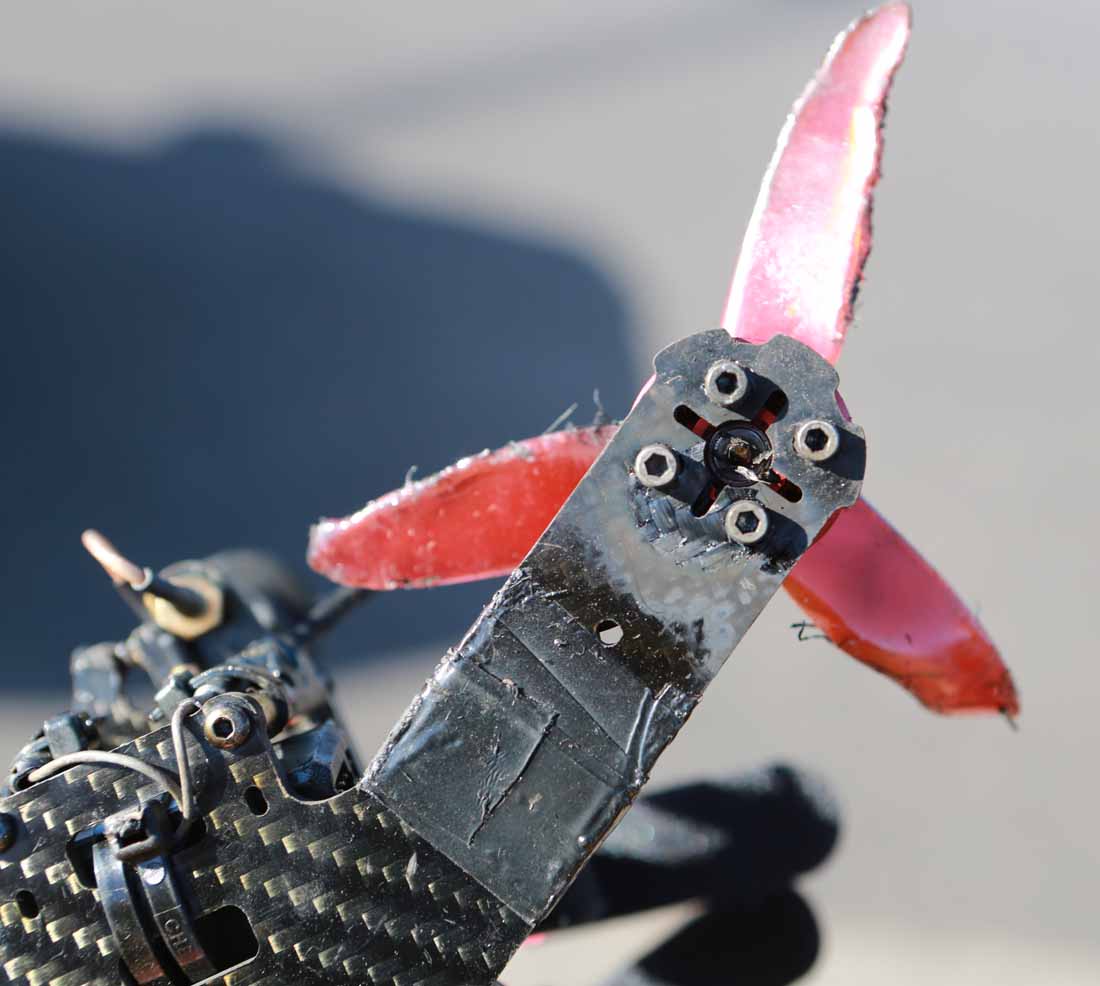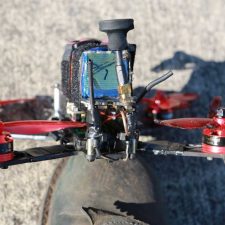Above: Photo by Fire Marshall Jeffrey Pricher
We just found out about another drone that started a wildfire in Oregon. This time time it happened in Scappoose about 25 miles northwest of Portland. According to a press release from the Scappoose Fire District, the drone crashed June 26 in FAA restricted airspace near Scappoose Industrial Airpark. It landed in dry grass and sparked a fire.
After trying unsuccessfully to stomp the fire out, the operators called 911. It burned about a quarter acre before firefighters put it out.
The operators were issued a verbal warning for using the aircraft in restricted airspace. FAA regulations require recreational drone operators to give notice for flights within five miles of an airport to both the airport operator and air traffic control tower, if the airport has a tower. However, recreational operations are not permitted in Class B airspace around most major airports without specific air traffic permission and coordination.

The Fire Marshall for the Fire District, Jeffrey Pricher, told us that as the drone was flying, a malfunction occurred. The aircraft went out of control and crashed. As for the exact cause of the ignition of the fire, he said that after an initial examination the battery looked intact. So he is considering something related to one of the electric motors, but the investigation is still ongoing. Normally they operate at about 100 degrees, he said, but if there was an anomaly or an object was impinging on one of the moving parts, friction could cause an elevated temperature and failure of the motor.
Mr. Pricher said this was a racing drone, which normally do not have legs, landing gear, or anything that would keep the motors elevated off the ground more than a fraction of an inch when it lands upright. If it did have an overheated motor, landing (or crashing) in a grassy field could put the motor in close contact with flammable vegetation.
On July 12 KEZI reported on a drone battery that caused a small fire in a residence a couple of months ago in Eugene, Oregon. The owner of a Propel X-5 drone had just charged the battery for 15 minutes:
[Tina] Thomas said they unplugged the battery and then noticed it was smoking. That’s when the trouble began.
“Then it just shot out. I mean it was like a missile,” Thomas said.
She said the battery shot right into the carpet and lit it on fire, and then the charger port shot into the dog bed and lit that on fire.
They put out the fire but had to replace the carpet. And thankfully, the dog was not in its bed at the time.
On July 10 a racing drone crashed when a dog jumped on the person flying it near Springfield, causing him to drop the controller. The small aircraft spun out of control, crashed, and as the video kept recording, started grass on fire within three seconds. It burned about two acres before firefighters put it out.
Thanks and a tip of the hat go out to Paul and Kelly.
Typos or errors, report them HERE.


flying near an airport is not the same as flying in “restricted” air space, It is completely legal to fly within 5 miles of an airport. it is articles like this that are making it hard for sUAS operators by spreading inaccurate information. The average non sUAS knowledgeable person reads this crap and then starts harassing everyone they see flying any type of rc, you should at the very least research the subject before writing about it. maybe add a disclaimer that lets these people know that it is a felony to in any way interfere with the flight operations of a federally registered aircraft/drone/sUAS.
We stand by what we wrote in the article:
Bill- I sent you a correction, and to note, PDX is Class Charlie airspace. Not Bravo.